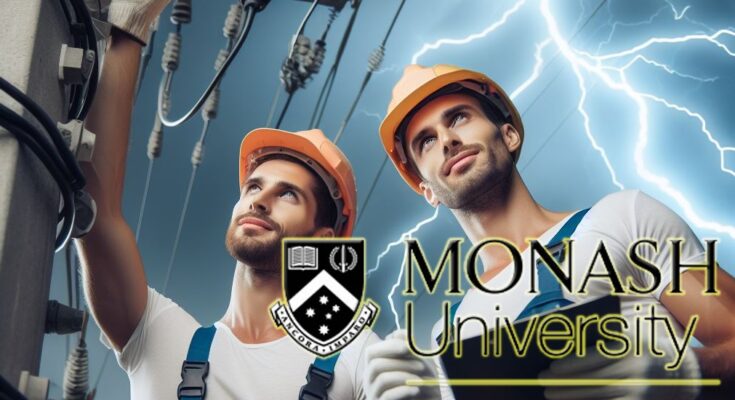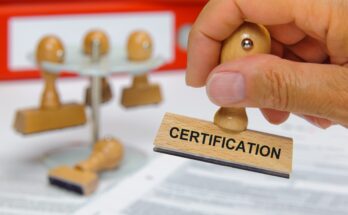Illuminating the Mind: The Role of Books and Magazines in Expanding Electrical and Electronics Engineering Knowledge
Introduction
Studying Electrical and Electronics Engineering (EEE) is a journey of perpetual discovery, a continuous exploration into the intricate world of circuits, signals, and systems. While academic courses provide a structured foundation, delving into books and magazines relevant to electrical and electronics engineering can be a transformative and enriching experience. In this article, we will explore the invaluable role that reading plays in broadening knowledge and perspective within the field of EEE, and we’ll delve into some exceptional books and magazines that cater to various levels of expertise, interests, and goals.
The Power of Reading in Electrical and Electronics Engineering Education
ading books and magazines is an immersive and effective way to deepen one’s understanding of complex concepts, stay abreast of industry trends, and gain insights from experts in the field. Whether you are a student looking to solidify your foundational knowledge, an enthusiast aiming to explore new areas, or a professional seeking to stay current with advancements, the written word is a gateway to a vast reservoir of wisdom and expertise.
Benefits of Reading in EEE Education:
- In-Depth Exploration: Books and magazines allow for a deep dive into specific topics within electrical and electronics engineering. They provide a level of detail and context that may not be covered in standard academic courses.
- Practical Insights: Many books and magazines offer practical insights, real-world examples, and case studies that bridge the gap between theoretical concepts and their application in industry. This practical orientation enhances problem-solving skills and prepares readers for professional challenges.
- Diverse Perspectives: The diversity of authors and contributors in books and magazines exposes readers to a wide array of perspectives, approaches, and methodologies within EEE. This diversity fosters a well-rounded understanding of the discipline.
- Continual Learning: Electrical and electronics engineering is a rapidly evolving field. Reading regularly allows individuals to engage in lifelong learning, keeping pace with technological advancements and staying informed about emerging trends.
Exceptional Books in Electrical and Electronics Engineering
- The Art of Electronics by Paul Horowitz and Winfield Hill:
– Widely regarded as a classic in the field, this book covers a broad spectrum of electronic topics, from basic principles to advanced applications. It is suitable for both beginners and experienced engineers, offering practical insights and a wealth of knowledge.
- Practical Electronics for Inventors by Paul Scherz and Simon Monk:
– Geared towards hands-on learners and inventors, this book provides a practical approach to electronics. It covers fundamental concepts while emphasizing experimentation and application, making it an excellent resource for those interested in building and creating.
- Microelectronic Circuits by Adel S. Sedra and Kenneth C. Smith:
– Targeted at students and professionals, this book is known for its comprehensive coverage of microelectronic circuits. It explores the theory, analysis, and design of electronic circuits, making it an essential read for those focusing on the intricacies of microelectronics.
- Introduction to Electric Machines and Drives by Paul C. Krause:
– For individuals interested in electric power systems and drives, this book offers a comprehensive introduction. It covers the principles of electric machines and their applications in various drive systems, making it suitable for both students and practicing engineers.
Outstanding Magazines in Electrical and Electronics Engineering
- IEEE Spectrum:
– Published by the Institute of Electrical and Electronics Engineers (IEEE), IEEE Spectrum is a renowned magazine that covers a wide range of topics in electrical and electronics engineering. From in-depth technical articles to discussions on industry trends, it provides a holistic view of the field.
- Circuit Cellar:
– Targeted at electronics enthusiasts, Circuit Cellar is a magazine that focuses on embedded systems, microcontrollers, and practical electronic design. It features project articles, tutorials, and product reviews, making it a valuable resource for hobbyists and professionals alike.
- Electronics For You (EFY):
– A popular magazine in the electronics community, EFY covers a diverse range of topics, including electronics design, embedded systems, and emerging technologies. It caters to a broad audience, from students to professionals, providing a mix of technical content and industry insights.
- EDN (Electronic Design News):
– EDN is a magazine that caters to professionals in the electronics industry. It covers a wide range of topics, including electronic design, testing, and product development. With a focus on practical applications, EDN is a valuable resource for engineers and designers.
How to Incorporate Reading into Your EEE Journey:
- Set Reading Goals: Establish reading goals based on your academic level, interests, and career aspirations. Setting specific goals will help you stay focused and organized in your reading endeavors.
- Allocate Dedicated Time: Designate specific times for reading, whether it’s a few minutes each day or a more extended period each week. Consistency is key to reaping the full benefits of reading.
- Create a Diverse Reading List: Include a variety of books and magazines in your reading list to expose yourself to different perspectives and aspects of EEE. Balance foundational texts with industry publications to gain a comprehensive understanding.
- Join Reading Groups or Clubs: Engage with fellow students, colleagues, or online communities to discuss readings and share insights. Joining a reading group provides a collaborative learning environment and an opportunity for networking.
- Apply Knowledge in Projects: As you gain insights from your readings, consider applying the knowledge in practical projects or assignments. This hands-on approach reinforces theoretical concepts and enhances your understanding.
Conclusion: Nourishing the Mind through Reading in EEE
In the vibrant world of Electrical and Electronics Engineering, where innovation and discovery are the driving forces, the role of reading cannot be overstated. Books and magazines serve as guiding beacons, offering a wealth of knowledge and insights that complement formal education. From foundational principles to cutting-edge advancements, the written word is a portal to continual learning and professional growth. By embracing the art of reading in EEE, individuals can illuminate their minds, broaden their perspectives, and navigate the ever-evolving landscape of electrical and electronics engineering with confidence and enthusiasm.
#electrical and electronics engineering
#Monash University Malaysia
Want to become a electrical and electronics engineering graduate? Read: https://www.articleshood.com/enhancing-your-electrical-and-electronics-engineering-education-with-online-courses/



